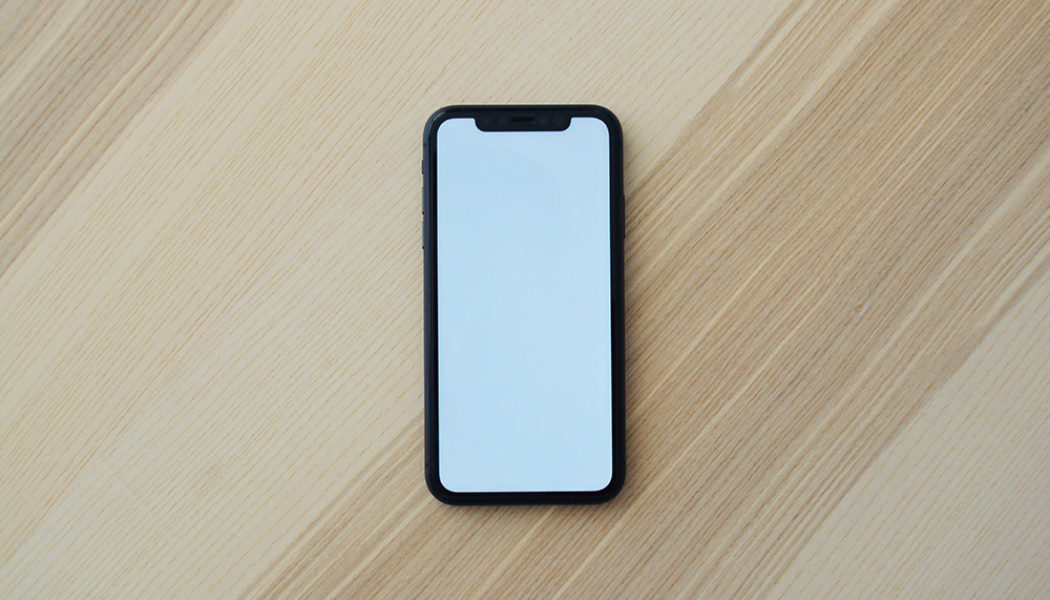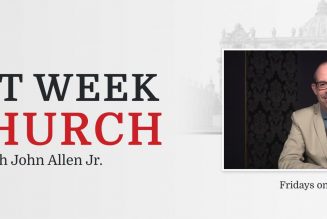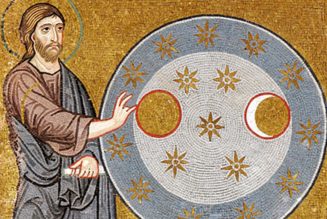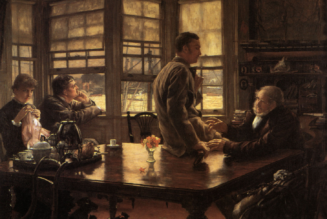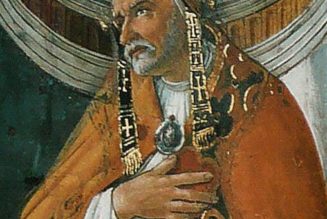
“All of man’s misfortune comes from one thing, which is not knowing how to sit quietly in a room.” Blaise Pascal, who offers this insight, also notes in his Pensées that we fear silence more than anything else and seek constant distraction. No one in the past had as many distractions as we do today, making it entirely possible to spend the whole day immersed in images, text and noise. Without the ability to sit quietly, we cannot perceive the deeper things of life as we live an unreflective life, hence Pascal’s warning on our misfortune.
Almost no one would willingly give up a smartphone or return to our pre-Wi-Fi days, even though we are beginning to feel unsettled in our new digital landscape. We want peace and quiet, even as we are addicted to our devices. In fact, our tools increasingly govern our life. We can’t drive anywhere without them. They now manage our houses and the flow of information. We constantly receive new alerts and notifications. Everything is at the tip of a finger; everything, except peace.
Even young people who have grown up in this constant saturation are looking for something else. For instance, TIME Magazine featured Professor Constance Kassor for running Lawrence University’s most popular class: Doing Nothing. This is how she describes the course: “One of the things that we really want students to get out of this class is that we want them to have a space where they can be fully themselves, where they can be present — not just physically, but also mentally and emotionally. Because I think this is kind of antithetical to what’s being asked of them a lot of the time. It’s really designed as a way to give students the space to slow down a little bit … And that’ll make them better people, more empathetic people, more creative people, deeper thinkers.” The class’s success points to something that we’ve lost in education and life more broadly.
Likewise, a group of high schoolers formed what they called a Luddite Club, describing the liberation that comes with abandoning a smart phone: “We’ve all got this theory that we’re not just meant to be confined to buildings and work … [but] experiencing life. Real life. Social media and phones are not real life.” One student, Lola, reported on giving up her smart phone: “I started using my brain. It made me observe myself as a person.” We can no longer take such simple things for granted. These high schoolers, even though a minority, have realized something necessary in guarding our humanity against too much noise and the intrusion of technology.
Rather than take a course on doing nothing, Catholics have ready answers to the domination of technology. We do not seek silence for its own sake (even if that is a start), but as an opportunity for encounter with God. Cardinal Robert Sarah’s amazing book, The Power of Silence (Ignatius 2017), teaches us that silence is the language of God, which we need to learn to converse with him: “At the heart of man there is an innate silence, for God abides in the innermost part of every person. God is silence, and this divine silence dwells in man. In God, we are inseparably bound up with silence. … God carries us, and we live with him at every moment by keeping silence. Nothing will make us discover God better than his silence inscribed in the center of our being. If we do not cultivate this silence, how can we find God?” (22). We have to learn the practice of silence, although it won’t come from a college course as much as time spent before the Blessed Sacrament.
Silence is a battle in a culture of busyness. Josef Pieper famously reminded us that external activity does not constitute life’s goal. Rather, we find our fulfillment in leisure, which is both the basis and height of culture. His book, Leisure: The Basis of Culture, points to internal activity, particularly contemplation, as the source of our happiness and fulfillment, especially when directed to God in worship and prayer. Leisure is not an absence of activity, or mere recreation and entertainment. It enters into the highest goods; it is drawn into them as if receiving them as a gift. Pieper clarifies: “Leisure, it must be remembered, is not a Sunday afternoon idyll, but the preserve of freedom, of education and culture, and of that undiminished humanity which views the world as a whole.” It withdraws from distraction so as to appreciate the goodness of the world, inspiring us to “waste” our time relating to the source of all goodness in God.
Leisure fights against the boredom of constant distraction by insisting that our time is ordered and that all work and free time find meaning when directed to their ultimate purpose. Pieper recognizes boredom as a spiritual crisis: “The vacancy left by absence of worship is filled by mere killing of time and by boredom, which is directly related to inability to enjoy leisure; for one can only be bored if the spiritual power to be leisurely has been lost.” Cardinal Sarah agrees: “Noise is a deceptive, addictive, and false tranquilizer. The tragedy of our world is never better summed up than in the fury of senseless noise that stubbornly hates silence. This age detests the things that silence brings us to: encounter, wonder, and kneeling before God” (56). Noise or silence — frenetic activity or leisure — this choice will shape the state of our soul.
– Advertisement –
Silence may save your soul. It will enable us to pull back from the craziness of life, gain peace, become reflective, and make space for God. We realize that we need it but don’t want to accept it because the sacrifice of time and convenience that comes from putting down technology may be painful. It is worth it, as Cardinal Sarah exhorts us: “Through silence, we return to our heavenly origin, where there is nothing but calm, peace, repose, silent contemplation, and adoration of the radiant face of God” (54). If we are overwhelmed by the noise of life, it is possible to find healing and peace. God can repair the damage of modern culture within us, but we need to turn to him ardently in prayer. This healing may come to us most fully in the silence of adoration and the encounter with Christ the healer in confession. There he gives us his peace and makes us new once again. He can help us to overcome our dread of silence by making us whole with his saving presence.
